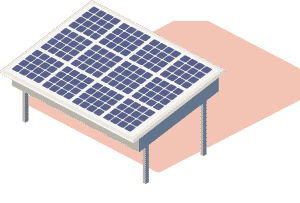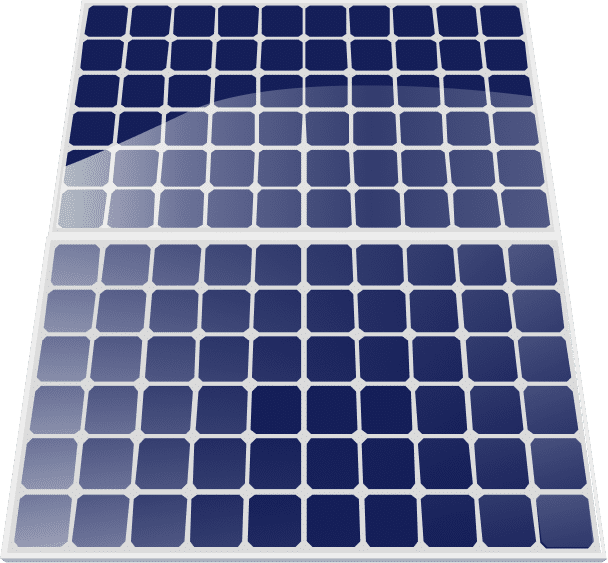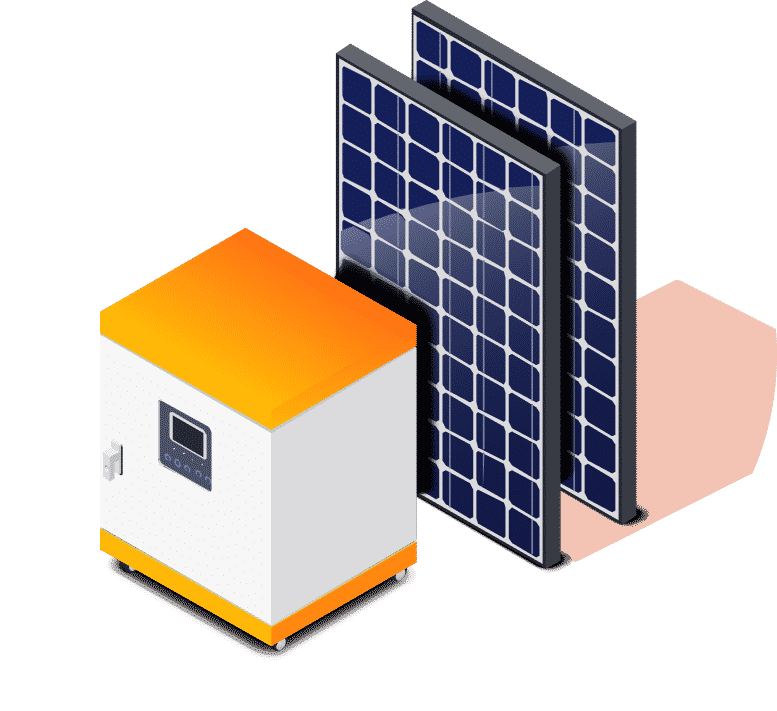Why are solar panels good for the earth?

What are the benefits of solar panels for the earth?
With more and more buildings are opting to install solar panels solar energy is now the most sought-after source of renewable solar energy for businesses and homes. We are also seeing the growth of solar farms being built and this is good news for the world and our environment. It is crucial to know the advantages of solar panels for the environment. Also, learn about some of the potential problems they may cause and the best way to address them.
The Environment Benefits
Since they do not emit emissions and are environmentally friendly, solar panels offer many benefits to the environment.
- This decreases the amount of energy you consume through the Grid. Solar power is not available during the night, therefore those with solar batteries have to be connected to the National Grid in order to be able to run your home when darkness falls. This is, however, decreasing their dependence of that National Grid.
- No emissions. Because solar energy is entirely dependent on the sun’s energy and transforms it into hot water or electricity for our homes, it does not generate any greenhouse gases nor contribute to global warming. You can reduce your home’s carbon footprint by as high as 80percent in one year.
- It’s renewable. It is also a type of renewable energy. Because this energy source will never be exhausted there will always be enough. Fossil fuels, which are renewable energy sources which can harm the environment because they are mined and distributed and distributed, are not sustainable. It is possible to reduce the amount of households that rely on fossil fuels by only relying to solar panel systems. This can have a greater impact than you think.
- They’re durable and require little maintenance. Although the manufacturing process of solar panels isn’t ideal (which we’ll discuss in the next section), the fact that they are durable and last well and require little maintenance is great news. Conventional heating systems must be replaced and maintained regularly. This could result in lots of waste and increase demand for new heaters. It is not necessary to change solar panels for more than 50 years.
Although solar energy offers numerous benefits but there are a lot of concerns regarding its green credentials. Let’s first look at the financial benefits as well as the environmental benefits of solar energy.
Solar Power Lowers Carbon Footprint Emissions
Since it is primarily dependent in sunlight, sun-generated energy is the most significant impact on the environment by cutting down on carbon emissions and greenhouse gasses. Solar energy is more eco green than fossil fuels and does not require any additional resources other than water to run.


Solar panels help reduce your dependence on the National Grid and your carbon emissions
Solar power systems can drastically reduce the amount of power that you draw from the grid. Clean Energy estimates that a home with a photovoltaic system (PV) could reduce greenhouse gas emissions by 1.3-1.6 tonnes per year.
Solar Energy is Sustainable
These resources will soon disappear as the population of the world increases. Solar energy is sole source of energy, so the solar system’s energy source is unlimited.
This reduces the demand on finite resources such as coal, oil or natural gas which contribute to global warming.

Solar panels last for a long time.
Although there are plenty of ways to improve solar technology is extremely durable and lasts around 30 years with very low maintenance.
Thisis also beneficial to the environmental environment. There’s less requirement to maintain and replace this, which could result in an increase in solar panel waste.
Solar Reduces Water Pollution
Like any other manufacturing process making solar panels, it requires water.
The total water needed for solar energy is significantly lower than for other energy sources that need water to cool.
The solar energy increases the value of properties
Every kilowatt of solar power is added to the property’s general resales price. The homeowner can definitely consider solar energy as to be a long-term investment.
It can be used to recover land that has been neglected
The solar panels are able to be erected virtually anywhere. This means that brown land as well as other habitable zones can be utilized for solar panels without affecting wildlife.
Solar offers electricity that is accessible to off-grid users
If there is sunlight solar energy is able to generate electricity accessible to users who live in a distance.
Solar Power Systems are Good For the Economy
There are as many as 16,000 positions available in the [location] solar energy industry. These jobs are not only plentiful, but solar power is also more affordable than imported energy, which helps to ensure that prices remain stable.
The Environmental Advantages
However, there are some issues with solar panels in the environment. These are important points to be aware of to ensure that further research and development can tackle them.
- They can occupy a lot of land. They can occupy entire fields and are extremely large structures. Because they are installed on the soil, solar farms can’t be shared with other agricultural pursuits. You can lessen the environmental impact of solar farms by investing in floating solar panels or brownfield sites.
- Water consumption is quite high. It is utilized in the process of making solar panels. However, this is not an issue. Now, the focus is on thermal panels. To allow cooling systems to function effectively, solar thermal plants need large quantities of water. This is because many of the areas that are most promising for solar efficiency are the most dry climates. It can be challenging to overcome this problem.
- It is not always completely clean. However, panels made of solar also generate hazardous substances and pollute some regions. Monocrystalline solar panels generate massive amounts of silicon waste and require additional energy. Solar cells made of thin films can contain harmful substances that could create environmental damage. However, safe disposal is the responsibility of most manufacturers, and more firms are taking this step.
- Although solar power can generate electricity as well as heat and desalinate water throughout the world but its expense and inefficiency are the main obstacles to its acceptance.
- While solar panel systems eventually pay for their expenses however, their life span is often overlooked. It should be recycled, but it is often not.
- Also, consider the energy needed to manufacture solar panels and the production of solar panels. There are many questions as to whether or not solar energy is actually green.
What We Can Do to Improve Things
Solar panels can be an effective and cost-effective way to generate electricity in your residence. They’re also extremely green and can greatly decrease your carbon footprint. Investing in solar panels shouldn’t be a reason to avoid even though the manufacturing procedure and other aspects aren’t perfect yet.
Each solar panel purchased supports research and developmentthat results in improvements to the final product. There are many things which can be improved and they will hopefully improve over time. These are the most important things that could be improved.
- Efficacy levels are higher throughout the day
- Evening use: More efficient solar batteries
- Additional investments in floating panels to create reservoirs
- For a less harmful emission manufacturing process, a greener manufacturing process is required
- Alternatives to massive amounts of water used in cooling systems.
Further research and development can enable these to be achieved. Continue making investments in solar panel technology and assisting the development of better panels. We can achieve more efficient, stronger, and more effective solar power with the help of the public.
What are the most important things to look for in the best Solar Company
Solar panels are an investment that lasts for a long time. It is therefore essential to look over potential providers to select the most suitable one. How do you pick from the many solar providers that are available? This step-by-step guide will assist you choose the best solar service for your needs.
Step 1: Create a list of available solar companies.
It is easy to compare solar companies by creating a single page document that includes all the pertinent information about each firm. You can compile an inventory with the aid of an Excel spreadsheet Word document, an old piece of paper and a pen. It can contain both local and national companies which serve the state in which you reside.
Begin by doing the Google search for Shneyder Solar followed by your state or city.
Step 2: Compare the advantages and disadvantages of selecting a local installer or a national company
It is important to understand the differences between local{ businesses|| companies} and national companies when choosing a provider. Larger firms tend to be more established and have better warranties. They can also provide more payment options as well as maintenance services, such as panel cleaning.
Local companies will be better versed in your state’s permitting and rebate requirements. Because they are able to serve fewer clients and have fewer locations they can complete the process more quickly, which could enable you to schedule appointments for pricing and installation earlier.
This isn’t an answer that is right or wrong. Just consider whether a small business or a larger one can be beneficial to your requirements. It is important to note which firms are within each group.
Step 3: Check the Company Credentials
Most companies focus more on their experience than their company size. Visit the websites of companies to determine how long they have been operating for. Visit the website of the company to see if they feature the number of solar panels they’ve installed. Also, consider what types of roofing they have utilized successfully in the past.
When you are comparing documents, be sure to note the certifications of each business. Online certifications are common for most firms. But, it is always possible to phone the company to confirm credentials if they don’t list them on their website. Shneyder Solar is certified by the North American Board of Certified Energy Practitioners.The NABCEP is a nationally acknowledged certification program for installation and sales which is referred to by its name as the “gold benchmark.” Installers who are certified by the NABCEP’s PV Configuration Professional credential have undergone rigorous training and have attained the most rigorous requirements.
Step 4: Read the reviews
If a company does not take care of its customers, all the knowledge and certifications in the world will not be of any use. Solar energy can be difficult. It is essential to obtain the proper permits, decide on the size of your array and request tax credits. It is important to find a company that is friendly and willing to help.
You can search for reviews from customers on various websites. Contact the company to request references if you are unable to find more than a few. Shneyder Solar can provide you with two to three references on request.
It is possible to use the document to note the impressions you get based on the reviews you’ve read. This will allow you to remember the issues you’d like to address before you move forward.
Step 5: Review the financing options for each Business
There are many options for financing solar panels. You can pay cash, take out a loan or lease, or even enter an arrangement for power purchase (PPA). It is crucial to investigate the different options offered by each company in your list and take note.
If you know the way you would like your panels funded, ensure that any firm you’re considering has this option. It is not necessary to choose what option is right for you. You don’t have to be concerned because Shneyder Solar offers multiple financing options , so you can discuss your needs with them.
Step 6: Request a quote
Based on the data you’ve collected for each business make your list of five or six top choices. These are the companies you should contact to get an individual quote.
Shneyder Solar will make an appointment to view your property in order to accurately estimate the price. If you have any questions, ask them during the meeting, which includes the following.
- Do you have the ability to handle permits that my city and state have to require?
- How many panels will I need in relation to my energy usage per month?
- Is there a warranty? If yes, what exactly is it?
- What would the look be should I want to take to continue my business relationship?
Did [xfield_company emerge as the clear winner following a discussion with them? Congratulations, you’ve found your solar provider. Consider the factors that are crucial to your needs, such as prices, customer reviews, and level of service. To learn more about the available options in your area You can also utilize this solar calculator.
GET YOUR FREE PROPOSAL IN A FEW EASY STEPS
Fill out the form and our sales consultant will contact you! Once you’ve had your initial consultation, you’ll begin your solar journey.
